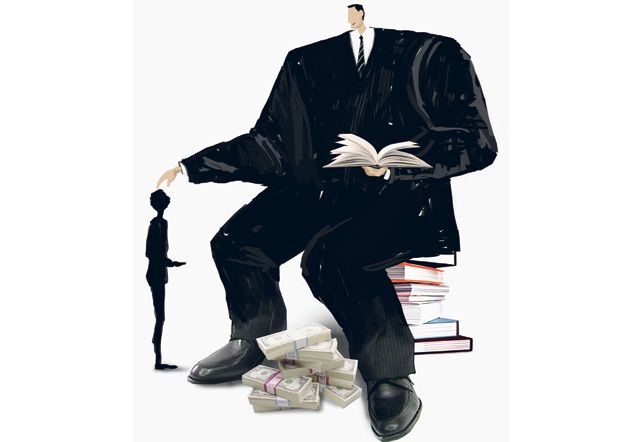The past month has found me deeply engrossed in a book named after a rather understated garment — The Blue Sweater. What the book lacks in glamour it zealously makes up for with impact and outright humanitarian verve. It speaks about patient capital, an interesting and novel philanthropic strategy that the author, Jacqueline Novogratz, has dedicated much of her very interesting adult life to. Today, Novogratz is the CEO of the Acumen Fund, a not-for-profit venture capital fund (not an oxymoron as you will see). With the backing of hundreds of individuals and a few large organisations such as the Gates foundation and Google, Acumen has helped build companies that have created jobs for more than 20,000 poor people in various parts of the world, such as East Africa, Egypt, India and Pakistan.
Billions of people still live well below the poverty line with no access to clean water, health care or shelter. Although charity has evolved over the years and become both bigger and more institutional, there are good reasons to believe that the charity model is in need of a make-over. I don't contest that traditional charities have always had their hearts in the right place. However, their attempts to solve time-honoured problems such as access to health care, housing and sanitation all revolve around conventional aid handouts — be it money, food or other tangible goods. Many large organisations and wealthy people donate to these charities, and they consequently alleviate suffering. However, this usually just provides short-term respite and should money run out there is little that those initially helped can do to sustain their standard of living, and they find themselves back at square one.
Vacuum
A significant oversight is made in traditional ‘giving' to those affected by poverty. Receiving aid is a passive act, and does little to empower the receiver. In this light, I see a vacuum — a yawning one — and growing poverty levels are the result.
The stage is set for patient capital, or perhaps we should call it charity 2.0 — a new paradigm with the potential for greater, more sustainable success. To put it simply, donations are collected by a fund like Acumen that then makes numerous small equity and credit investments in entrepreneurial initiatives and businesses that serve poverty-stricken communities. A wonderful example is that of Duterimbere — the bakery that Novogratz helped build in Rwanda. The Rwandan word duterimbere means to move forward with enthusiasm, and upon finding a group of influential women wanting to aid this project, Novogratz took it upon herself to teach a group of single mothers the core business skills they needed to operate. While creating jobs and teaching skills, this remarkably changed the lives of these women — instilling in them a sense of dignity and self-worth, giving them choices in life and, more importantly, creating financial security. This story and that of the Malaria preventative bed-net business that Acumen helped fund, which now employs over 7,000 people in Tanzania, are both fascinating examples of the wonders of patient capital.
I realise how integral enterprise is to the solution of poverty. With the help of small doses of philanthropic capital within a capitalist framework, entrepreneurs who have a vision and are aided with the skills and tools for business are able to develop long-term sustainable solutions to local problems. This also establishes accountability — an inherent part of patient capitalism.
Having lived in the UAE my entire life, I have had the privilege of witnessing our country and region develop to the point that we have established our own charities and non-profits, such as Dubai Cares. As I recount the many interesting stories told to me by my father from his book, a bygone era of pre-oil when times were difficult, I see parallels in that people were faced with similar challenges across health, water and sustainable development. We are currently in a position to help people around the world that face the issues we overcame decades ago. In 1954, when Shaikh Rashid Bin Saeed Al Maktoum had a vision to secure Dubai's future prosperity by initiating the dredging of the creek, he secured financial support from the government of Kuwait. We are now able to lend financial support to others. Oil has certainly been a blessing and has allowed us to finance initiatives that address global issues.
Last week I had the pleasure of meeting Novogratz here in Dubai over breakfast. I went to meet this remarkable woman, her book in hand to be autographed, not knowing exactly what to expect. Her humility was overwhelming, her daring yet calm character quite contagious. After getting to know each other very well, this powerful and highly independent woman made me realise that patient capital is much needed in our impatient world.
Muna Al Gurg is a director at the Easa Saleh Al Gurg Group and vice chairperson of the Young Arab Leaders.










